Super bugs are on the rise, causing more deaths than HIV/AIDS. Among them is the methicillin-resistant Staphylococcus aureaus (MRSA) strain. According to the Journal of the American Medical Association (JAMA), this super bug caused close to 100,000 cases in the United States in 2005 compared to 18,600 deaths caused by HIV/AIDS during the same year.

Protect Yourself Against the MRSA Super Bug
by mercola
Super bugs are on the rise, causing more deaths than HIV/AIDS. Among them is the methicillin-resistant Staphylococcus aureaus (MRSA) strain.
Typically, staph strains are harmless. Up to 30 percent of people carry them in their nose without experiencing an infection. Complications only occur when these bacteria enter your body through cuts and wounds. Most staph strains are mild and easy to treat.
MRSA, on the other hand, is NOT like the mild staph species. This dangerous breed of bacteria has become resistant to the broad-spectrum antibiotics used to treat it, such as methicillin, oxacillin, penicillin, and amoxicillin.
Although MRSA cases are rising, there ARE ways to fight it naturally. But before that, it’s best to know how you usually contract the MRSA virus.
MRSA-Infested Areas: How You Can Get Infected
Physical contact with a person or object carrying the bacteria is the easiest way to acquire MRSA. Below are types of MRSA and where you can potentially get them:
- Health-care associated MRSA (HR-MRSA) – This type of MRSA can be found at healthcare settings, such as hospitals, nursing homes, and dialysis centers. People get infected with MRSA at healthcare facilities through surgical wounds, feeding tubes, or other invasive devices.
- Community-associated MRSA (CA-MRSA) – The US Centers for Disease Control and Prevention (CDC) said that about 14 percent of infections are caused by CA-MRSA. These people have not had any exposures to healthcare facilities and are healthy. The following are factors that may increase your risk of becoming infected:
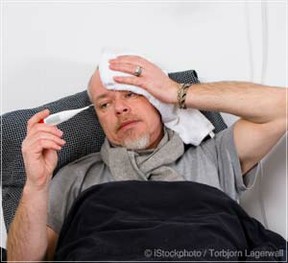
- Age – Children and the elderly are more prone to CA-MRSA infections
- Recent antibiotic use
- Living in crowded areas, such as prisons
- Participation in contact sports (skin-to-skin contact)
- Sharing personal items and athletic equipment
- Residing with someone who works in a healthcare facility
- Impaired immune system
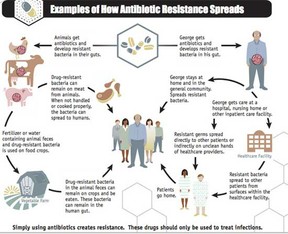 The first sign of infection is a small, red, pimple-like bump or boil. This can progress into deep and painful abscesses. During this time, your skin may be swell and become full of pus.
The first sign of infection is a small, red, pimple-like bump or boil. This can progress into deep and painful abscesses. During this time, your skin may be swell and become full of pus.
In advanced cases of MRSA, you may experience shortness of breath, fever, cough, and chills. This occurs when MRSA has penetrated your lungs. Other adverse MRSA symptoms can also surface when the bacteria make their way to your bloodstream, heart, bones, or joints.
MRSA Prevention: Steps You Can Do at Home
MRSA is a man-made problem caused by antibiotic overuse. Antibiotics are one of the most prescribed drugs in the modern world. About 70 percent of antibiotics in the US are used in agriculture.
Livestock are fed with low doses of antibiotics not only for the purpose of fighting disease, but also to hasten their growth. To make matters worse, they can find their way to your crops via manure from antibiotic-fed animals. These conventional farming practices have become a driving force behind the birth of antibiotic-resistant bacteria.
Although the issue of antibiotic overuse in conventional medicine and agriculture should be addressed on a large scale, you can do something about this problem by evaluating your own use of antibiotics. Do not take them or give them to your children unless it’s absolutely necessary.
Instead of concentrating on finding a cure for infections, focus on prevention. I urge you to incorporate the following natural techniques to your lifestyle to help prevent MRSA and other infectious diseases:
- Handwashing is one of the oldest and most potent antibacterial techniques. When done properly, it may be key to stopping MRSA. Avoid using antibacterial soaps as their antibacterial compounds contribute to the formation of antibiotic-resistant bacteria.
- Wash your hands for 10 to 15 seconds using warm water and mild soap.
- Clean every area of your hands, including under your nails.
- Rinse thoroughly.
- When opening doors, use paper towels to protect yourself from germs lurking on door handles.
I recommend that you follow this handwashing guide:
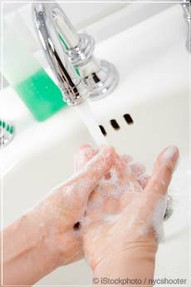 Although handwashing is effective in warding off bacteria, washing too frequently can shed your skin of protective oils, which can lead to cracks and bleeding.
Although handwashing is effective in warding off bacteria, washing too frequently can shed your skin of protective oils, which can lead to cracks and bleeding.
- Don’t share your personal items, like towels, clothes, athletic equipment, razors, and so on, since MRSA can be obtained through contaminated objects.
- Replace chemical disinfectants with natural cleansers. You can use natural all-purpose cleaners or make them yourself using 3% hydrogen peroxide and vinegar.
- Eating garlic can help fight bacteria. Garlic’s active compound, allicin, is an efficient natural “antibiotic” that can neutralize resistant germs like the MRSA. Bacteria appear to be unable to develop a resistance to allicin.
To experience the full benefits of allicin, fresh garlic must be used. I do not advise using garlic pills, since the active compound is destroyed within one hour of smashing. Compress the garlic with a spoon prior to swallowing it. Swallowing the clove intact will not convert the allicin to its active form.
You might also like
Painfree Arthritic Knees Without SurgeryAPOS therapy saved my life. I was on a fast downhill spin into disability, se...
How to Lower Cortisol Levels Reduce Stress Hormone and Improve...Cortisol is a steroid hormone regulating metabolism, the immune system and ai...
Walking Your Way to HealthThere is much research that shows that walking is beneficial to body and mind.
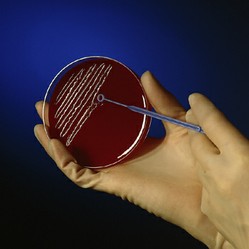


 How to Create a Probiotic-Rich Drinkon 04/04/2014
How to Create a Probiotic-Rich Drinkon 04/04/2014
 Coconut Oil and Beyond: Get the Most Out of Coconutson 07/29/2013
Coconut Oil and Beyond: Get the Most Out of Coconutson 07/29/2013
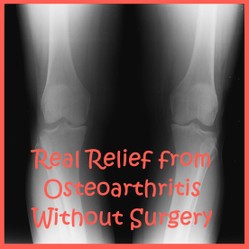
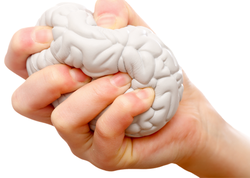

Comments
Great advice as always Dr. Mercola. I'm pinning this.